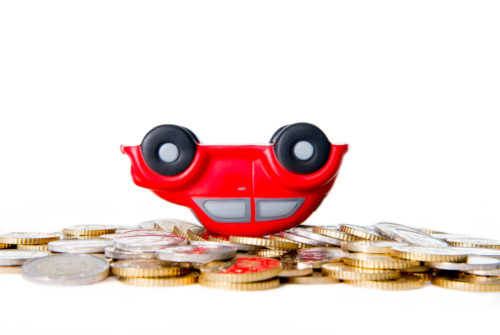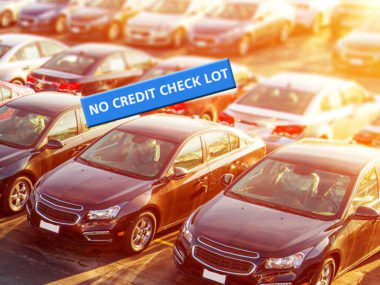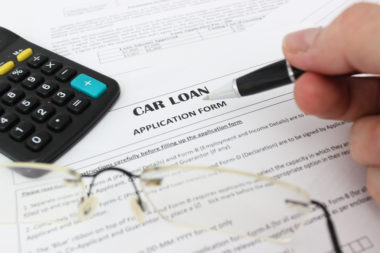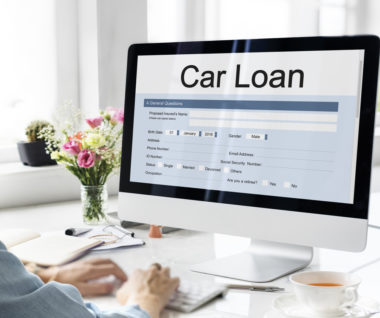Yes, you technically can refinance an upside down car loan, but it’s generally not a good idea. There are other ways to remedy your situation, and refinancing an upside down car loan will probably only worsen your financial position in the long run. If it’s your only option to avoid bankruptcy, then go ahead, but otherwise try to avoid it.
Table of Contents
Car Loans With Negative Equity
Going upside down on your car loan, also referred to as going “underwater,” is when you owe more money on the loan than the car is worth. All cars depreciate over time, and if you’ve got a high interest rate and continue to pay the minimum, you could reach a tipping point where you owe more than you could make by selling the car. This gives you a negative equity on the car overall, and it can be pretty tempting to consider refinancing.
However, it’s a better idea to just get out of the upside down car loan. It can be a complicated process that will depend heavily on the overall state of your finances and what other assets you have.
Refinancing an Upside Down Car Loan
If your only option is the refinance, then you certainly can, but the process will be a little different than when you typically refinance a car loan.
You definitely want to avoid extending the life (or term) of the loan. Even though lower monthly payments look nice, they’ll lead to you paying off the loan over a longer period of time, which will allow your car to depreciate even more, and cost you more in interest.
Negotiate With Your Lender
Your first step should be to meet with your lender. Be open about your financial situation; they know that if you have an upside down car loan, you’re more likely to default on the loan altogether, especially if you also have bad credit.
If you’re open about your situation, your lender might be willing to renegotiate the terms of the loan just to avoid you defaulting.
Take a Personal Loan
Alternatively, you can take out a personal loan to pay back your existing car loan. This is a little different than directly refinancing, since this new personal loan will be unsecured.
Car loans are secured, since the value of the car itself is collateral, backing up the loan. Your personal loan, however, probably doesn’t have an outside form of collateral backing it up. Unsecured loans are typically restricted to people with good credit scores, but that’s not always the case. If you can find a lender that will offer you a personal loan with lower interest or fees than your current car loan, you might want to consider switching them out. This way you’ll be repaying your personal loan, rather than your auto loan each month.
Use Your Home Equity
If you own your home, you can also take out a home equity loan, which allows you to borrow against the value of your home. This is a secured loan, just like an auto loan, so it might be easier for you to qualify for it. You can then use that money to pay off your car loan.
Pay attention to the fees and interest of your home equity loan. It can be tempting to just trade the devil you know for the devil you don’t know, but take the time to carefully evaluate whether taking out a home equity loan will really help you in the long run. If you don’t pay off your home equity loan, you could lose your house. Consider all of the potential risks.
Finding a Dealer Who Will Pay for Negative Equity
Some car dealers will pay off your loan for you if you get a new car from them. However, this is often too good to be true. Many car dealers will just attach your negative equity to your new loan, which could to lead to longer, more expensive payments on your new car.
You’ll probably have some trouble finding a dealer willing to pay your negative equity so be ready shop around if you’re going with this strategy.
Trade In or Sell Your Car
You can also cut your losses and eat whatever negative equity you’ve accumulated. You can try to trade your car in, and the negative equity will likely roll over to your next car loan, or you could sell your car. This will likely be at a loss, but it could be a huge step toward paying off the remaining balance.
None of these are great options. Your best bet to is to avoid negative equity in the first place, or, barring that, pay off your loan as quickly as possible. Having an upside down car loan is a drain on your finances, and refinancing isn’t the easy solution here. Instead, learn from this mistake, and don’t let it happen with your next car.
Image Source: https://depositphotos.com/





